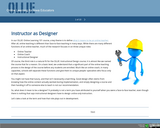
ADDIE and the Design Process
- Subject:
- Education
- Material Type:
- Activity/Lab
- Reading
- Provider:
- AEA
- Provider Set:
- OLLIE
- Author:
- Evan Abbey
- Date Added:
- 12/03/2018

ADDIE and the Design Process

This animation seeks to lead students to a deeper understanding of the challenges that come with online learning for those with disabilities, and a newfound or renewed sense of empathy towards others.
Music by VYEN.
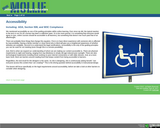
Accessibility in Online Learning
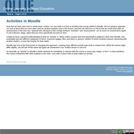
Activities in Moodle
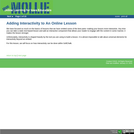
Adding Interactivity to an Online Lesson
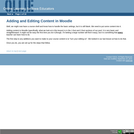
Adding and Editing Content in Moodle
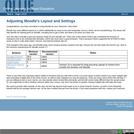
Adjusting Moodle's Layout and Settings
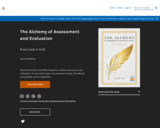
This comprehensive guide illuminates the art and science of educational assessment, blending ancient alchemical wisdom with modern AI innovations. Part one lays the foundation, exploring essential principles of assessment and evaluation and its pivotal role in shaping learning outcomes. Part two delves into diverse assessment types, from formative assessments driving real-time adjustments to summative evaluations measuring overall achievement. Part three offers expert guidance on crafting effective assessment designs, ensuring authenticity and inclusivity. Part four examines the alchemy of feedback and grading, empowering educators with strategies for constructive engagement and growth. Part five focuses on evaluations, showcasing methods to assess program effectiveness and student progress over time. Whether you’re an educator refining assessment practices or an instructional designer harnessing AI’s potential, this book equips you to turn every educational challenge into a golden opportunity.
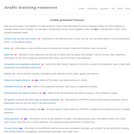
This page contains brief lessons about specific grammatical issues and focuses mostly on Egyptian colloquial Arabic, though it does also include some information about Modern Standard Arabic (MSA). Given their brevity, the lessons are of limited use.
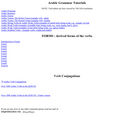
This site has numerous brief, text tutorials on formal Arabic grammatical topics such as sentence structure, verb conjugation, and pronouns, as well as an extended section on the 10 most common verb forms. These tutorials usually favor transliteration over Arabic script.
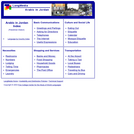
This site contains numerous audio, and video files, grouped by topic, of subjects speaking Jordanian colloquial Arabic. There are also a few images and informational links interspersed throughout the site. Each video is available for download and accompanied by an Arabic transcript and an English translation. Videos are based on every day topics like greetings, farewells, shopping, and transportation.
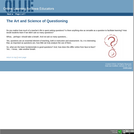
Art & Science of Questioning
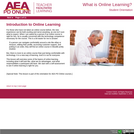
What is Online Learning?
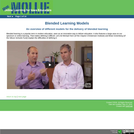
Blended Learning Models
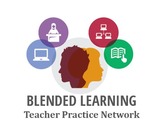
In this online learning module, you will: 1: Understand blended learning models2: Learn to design blended learning experiences
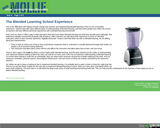
Blended Learning School Experience
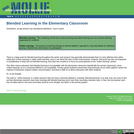
Blended Learning in the Elementary Classroom

Blending Your Content
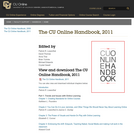
The CU Online Handbook shares some of the great things faculty are doing in their online courses across the university. The CU Online Handbook is also available online as an e-book. This is the 2nd edition of the CU Online Handbook (Lowenthal, Thomas, Thai & Yuhnke, 2009). Themes throughout this edition of The CU Online Handbook focus on how faculty can connect and build relationships with students and how technology can help in this process. Whether teaching online for years or are just beginning, this edition of The CU Online Handbook will help faculty improve the quality of the online courses they design, develop, and teach.
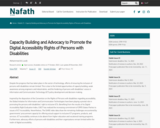
Despite the progress that has taken place in the sector of technology, efforts of ensuring the inclusion of persons with disabilities remain limited. This is due to the limited opportunities of capacity building, weak awareness among engineers and industrialists, and the hindering of persons with disabilities’ voices in Information and Communication Technology (ICT) policy development and decision-making.
Inspired by the disposition of the Convention on the Rights of Persons with disabilities regarding accessibility, the Global Initiative for Information and Communication Technologies have been playing a pivotal role in promoting the persons with disabilities’ right to inclusive ICTs. Benefiting from the results of its Digital Accessibility Right Evaluation Index, G3ICT has realized the increasing commitment of CRPD States Parties to issues of ICT Accessibility. Nevertheless, The DARE index data show the remaining challenges encountered by governments’ procurement capacity for offering actual support to inclusive ICT programs, products, and services. ICT accessibility continues to be absent from higher education and vocational training programs. Furthermore, advocacy efforts of persons with disabilities and their organizations remain limited within the realm of digital accessibility.
This paper discusses G3ICT’s Digital Accessibility Right Education (DARE) Academy, and its role in tackling issues of digital divide through offering a platform of educational development and advocacy capacity enhancement for persons with disabilities around issues of ICT accessibility.